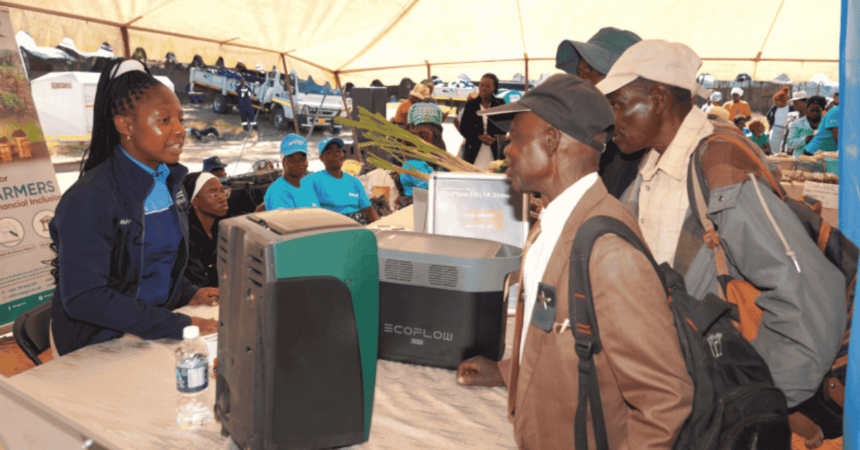The sun rose over Bikita District in late June, casting a warm glow over the bustling crowd that had gathered. However, this wasn’t market day—it was the Digital Fair, a groundbreaking event hosted under the FAO’s Fostering Digital Villages Initiative (FDiVi). The fair served as a showcase of how technology is reshaping rural agriculture in Zimbabwe, offering farmers a glimpse into the future of farming.
The FDiVi project, which had been gaining momentum since its launch in September 2024, aimed to empower smallholder farmers in Zimbabwe to become active economic participants rather than mere spectators. Deputy Minister Haritatos had heralded the initiative as a means to drive economic growth and transform the agricultural landscape of the country.
Leading up to the Digital Fair, Digital Champions—comprising 30 lead farmers and 20 extension officers—had undergone intensive training to equip them with the knowledge and skills needed to leverage technology in their communities. The fair, held in Masvingo Province, featured a wide array of cutting-edge technologies, including AI-powered advisory apps, drone services, mobile market platforms, and digital wallets.
Farmers and experts alike were captivated by the demonstrations at the fair. One farmer, after snapping a photo of his maize field, received real-time AI analysis that flagged a pest infestation and offered treatment options. The accessibility and simplicity of these digital tools showcased the potential for technology to revolutionize agriculture in Zimbabwe.
District Development Coordinator Bernard Hadzirambwi expressed his excitement about the transformative power of digital innovation, emphasizing the importance of community engagement in driving progress. Nearby, young farmer Sheunesu Njeke, at 26 years old, highlighted how technology had given him newfound confidence in his farming practices, enabling him to connect directly with buyers and plan his sowing activities using AI.
FAO’s Patrice Talla underscored the project’s focus on youth and women, aiming to foster inclusive transformation in rural communities. Digital hubs were being established in Bikita and Mhondoro-Ngezi, providing free internet access, computer training, and connections to service providers.
Despite the success of the FDiVi project in training over 3,000 farmers and garnering widespread social media attention, challenges such as internet affordability and infrastructure gaps remained. However, the Digital Fair signaled a shift in the agricultural landscape of Zimbabwe, demonstrating that digital agriculture was no longer a distant concept but a tangible reality taking root in rural communities.
Looking ahead, the project aimed to integrate digital fairs into local agricultural shows and support entrepreneurs in bringing tech solutions to rural areas. With each village connected through technology, Zimbabwe was steadily progressing towards a future of climate-smart and market-savvy farming practices.
The Digital Fair wasn’t just an event—it was a catalyst for change. By turning observers into participants, skeptics into adopters, and rural stations into hubs of innovation, the fair paved the way for Zimbabwe’s countryside to lead Africa’s digital farming revolution. If the FDiVi project continued to expand and evolve, the possibilities for Zimbabwe’s agricultural sector would be endless.
Key Facts at a Glance:
– Digital Champions trained: 50+
– Farmers reached (so far): 3,000+
– Districts involved: Bikita, Mhondoro-Ngezi
– Focus groups: Youth, women, agro-dealers
– Platforms featured: AI advisory, mobile markets, drone, digital finance
As Zimbabwe embraces digital agriculture, the future looks brighter than ever for the country’s farmers and rural communities.








